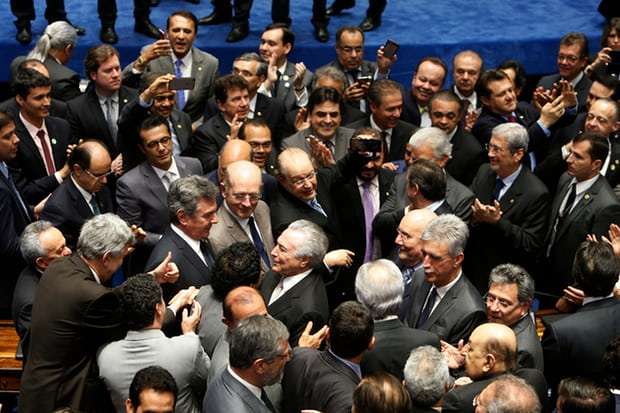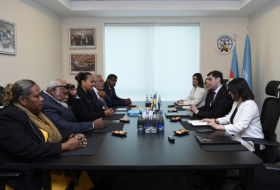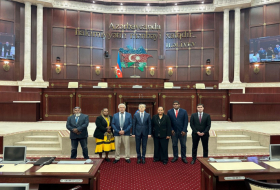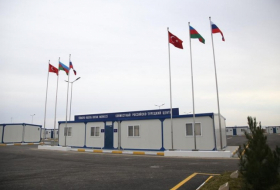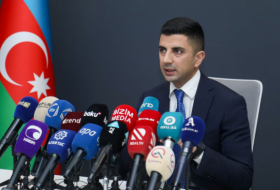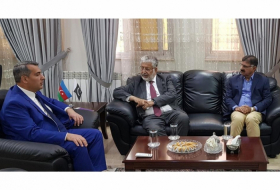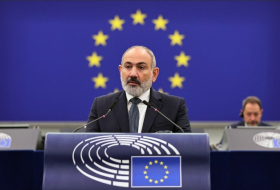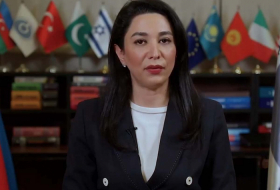Party leaders, state secretaries and five of ex-president Dilma Rousseff’s governors are included in the “dirty list” of elected parliamentarians who received R$3.5m (£760,000) during the last general election, according to the NGO Repórter Brasil.
Temer’s election committee was found to have received R$700,000 (£150,000) from OAS, a Brazilian construction company found guilty of keeping 111 workers in slave-like conditions during the expansion of São Paulo airport, in 2013.
“This is just one of an ocean of shocking practices that Temer’s administration has exposed,” said Xavier Plassat, head of the Pastoral Land Commission (CPT).
President Temer is being investigated for corruption as part of the nationwide Lava Jato (“Car Wash”) enquiry following accusations that he received bribes from JBS, the meat-packing company. JBS was at the heart of a series of Brazilian corruption and meat-industry scandals last year, including investigations of reported slavery in its supply chain.
Though receiving donations is neither a crime nor forbidden by Brazil’s electoral commission, the report provides an insight into how closely connected lawmakers can be with companies and individuals linked to illegal practices.
Twenty-one of the 51 MPs who received donations from companies identified by the authorities as using slave labour are part of the extremely influential rural caucus in congress. This lobby has continually attempted to limit efforts to combat slavery in Brazil and, late last year, supported Temer’s attempt to restrict the legal definition of modern-day slavery.
According to Brazilian law, four conditions are used to categorise “slave-like labour”: being forced to work; being obliged to work to pay off debts; degrading conditions that put workers’ health or dignity at risk; and an excessive workload that threatens workers’ health.
In a statement sent to Repórter Brasil, the president’s office said Temer was not aware of the company’s slave labour case, and that “[the] money was passed on to other candidates”. The office also denied that the donation had had any influence over Temer’s political decisions.
OAS did not respond to requests for comment from Repórter Brasil, which is based in São Paulo.
Marcos Montes – a federal deputy for the south-eastern state of Minas Gerais, who has repeatedly voted to decrease workers’ rights and limit the definition of slavery in Brazil – received donations from two entities on the register of companies caught using slave labour: £33,000 from Cutrale, one of the biggest orange juice suppliers in the world, and £1,000 from Marco Barbosa, a farmer found to be keeping eight workers in slave-like conditions in 2007.
Cutrale, which was caught keeping workers in slave-like conditions in 2017, said in a statement: “All donations made by Cutrale in election periods have always been made in a legal and transparent manner.”
Neither Marcos nor Barbosa responded to Repórter Brasil’s request for comment.
Another deputy from Minas Gerais, Domingos Sávio, who authored a bill to reduce rest periods for those who work outdoors in often blistering heat, received a direct donation of £4,000 from a construction company, which was on the register after it was found to be keeping 40 workers in conditions of modern-day slavery in 2014.
Sávio also made an amendment to labour laws, halving fines for those who illegally employ workers without signing their employment documents. Sávio did not respond to the Guardian’s request for comment.
“These findings are very useful for demystifying what is fuelling current attempts to backpedal on workers’ rights and anti-slavery legislation,” said Plassat. “The rural and construction lobbies are presenting a very strong offensive.
“It is not a surprise that those MPs who are supporting Temer’s administration in these huge regressions might be funded by those employers and corporations whose interests they are advocating for on a daily basis in congress.”
Repórter Brasil cross-checked campaign donations from the electoral court against companies that have been included on a centralised register of employers caught using slave labour between 2003 and 2017. The data includes cases of slave labour identified before and after the 2014 election.
These findings are part of the “Ruralometer”, a tool developed by Repórter Brasil to monitor the impact of actions by federal deputies on the environment, indigenous people and rural workers.
“Considering that most of the politicians we evaluated are expected to run in this year’s elections, the Ruralometer aims to bring public interest into the debate, as well as monitor agendas behind campaign finance,” said Ana Aranha, from Repórter Brasil.
The Guardian
More about: Brazil








